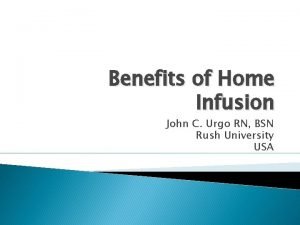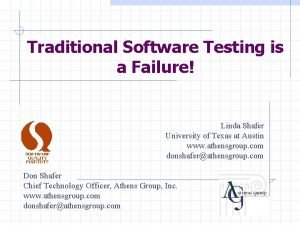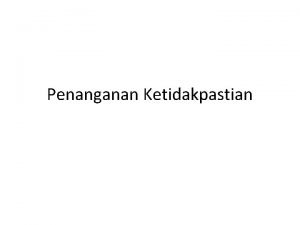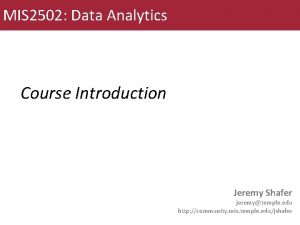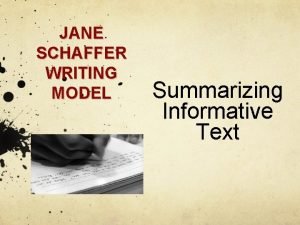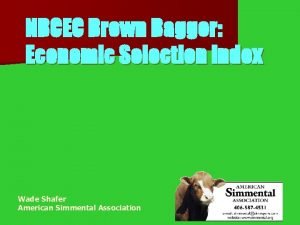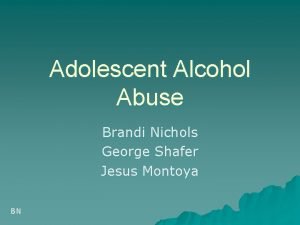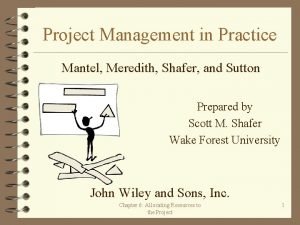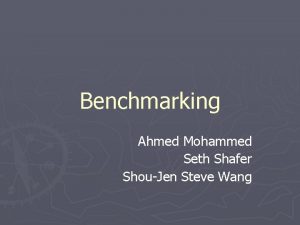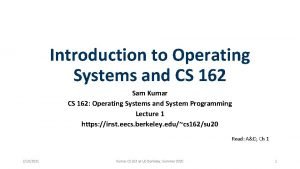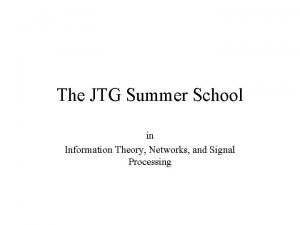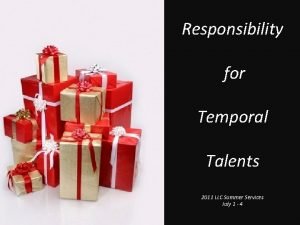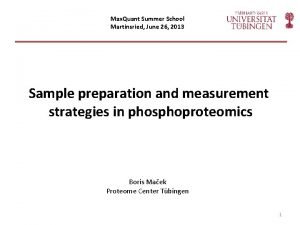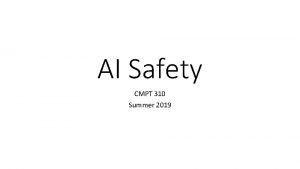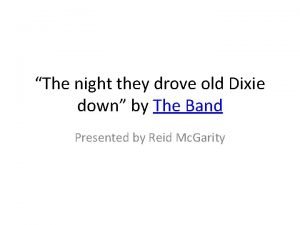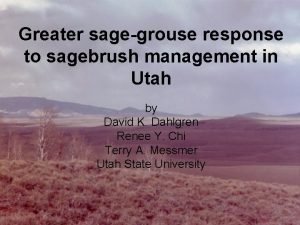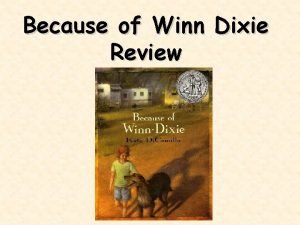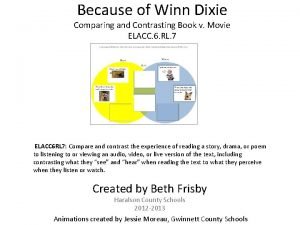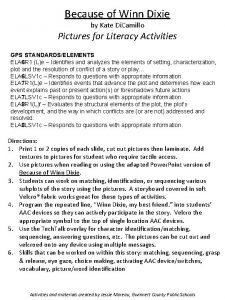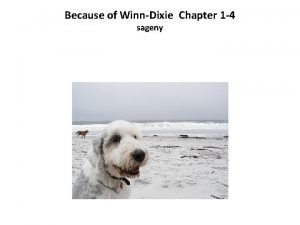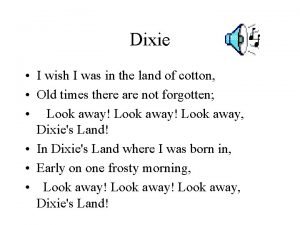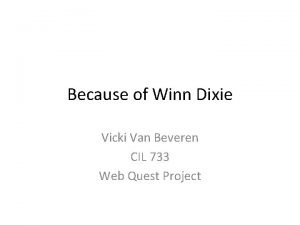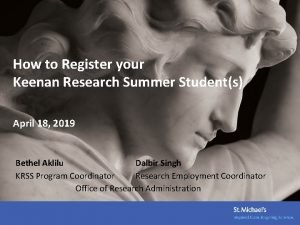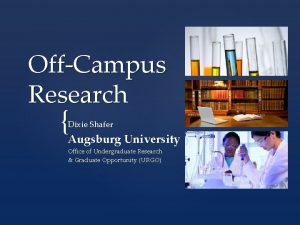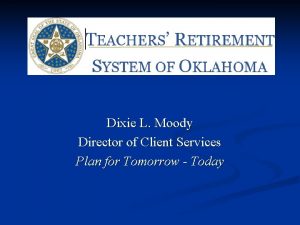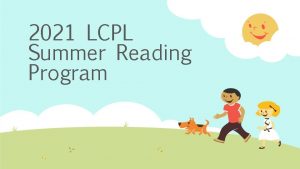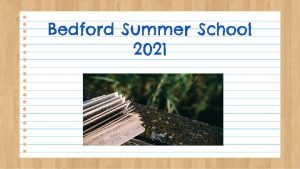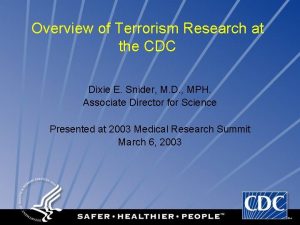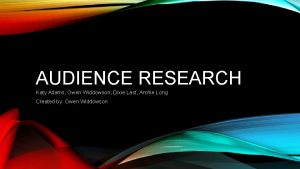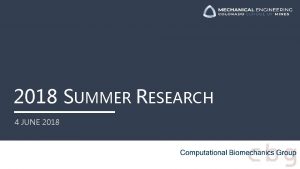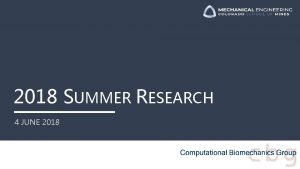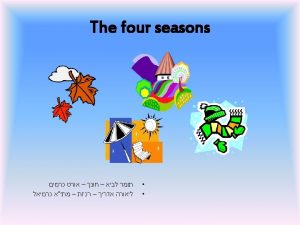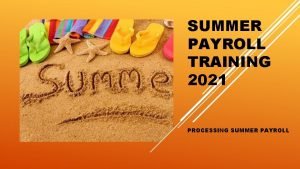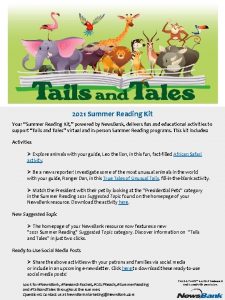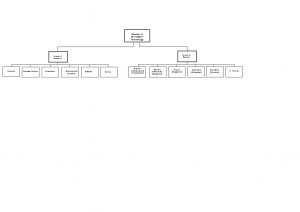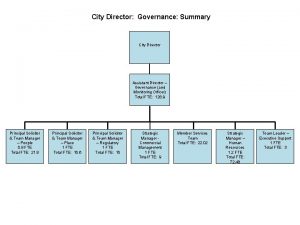2021 URGO Summer Research Dixie Shafer Director of


























- Slides: 26

2021 URGO Summer Research Dixie Shafer, Director of URGO

Undergraduate Research and Graduate Opportunity I. Undergraduate Research II. Graduate School Advising III. Pre-Health Sciences Advising IV. Nationally-Competitive Fellowships

Summer Research Coordinators • Social sciences, humanities and arts URGO Summer Research Coordinator is Dr. Maheen Zaman from history • Natural sciences, mathematics, statistics, and computer sciences URGO Summer Research Coordinator is Dr. Michael Wentzel from chemistry

Research and Creative Activity §Projects can be done in any field. §We recommend it be within faculty’s line of research or area of expertise. § Research produces knowledge, a product, or an outcome that makes an original contribution to its discipline. §Creative activity proposals show their creative project depends on research, and explain how the research will enhance and deepen the creative activity.

Summer Research and Creativity Defined Council on Undergraduate Research (CUR) definition of research: “Undergraduate research, scholarship, creative activity is an inquiry or investigation conducted by an undergraduate in collaboration with a faculty mentor that makes an original intellectual or creative contribution to the discipline, ” (Wentzel, 1997). Definitions are available on the URGO website under Summer Research Info Packet

Definition Continued Student “scholarly research” may be disciplinary or interdisciplinary in nature. It should produce knowledge, a product, or an outcome that makes an original contribution to its area. Research and scholarship may be conducted in all disciplines. Research may be qualitative or quantitative in nature, or may use any other methodology that is typical of the discipline in which the student is working.

Creative Activity Research conducted as part of a creative project should be integral either to the process of artistic creation or necessary to the end- product itself, as well as contribute to aesthetic or practical knowledge of the artistic field or medium in which the student is working. Students proposing a creative project should take care to show their project depends on research, and explain how the research will enhance and deepen the creative activity.


Eligibility Ø Be a full-time Augsburg undergraduate student (currently taking at least 12 credits per semester) Ø Have completed at least one year of undergraduate study by the start of research, and have at least one semester of fulltime study (at least 12 credits) remaining after the completion of summer research Ø Have a minimum GPA of 2. 8 (lower GPAs considered on a case -by-case basis) Ø NOT have participated in URGO 200 or 400 hours or the Mc. Nair Scholars program previously Ø For 400 -hour researchers: Must be present for 10 out of 11 weeks for research program (can take 5 days off) Ø For 400 -hour researchers: Must be present for presentations and celebration luncheon

First Step: Read the Information Packet and Application Forms available at augsburg. edu/urgo

Finding a Faculty Mentor • Talk to faculty you’ve had class with • Talk to several faculty in your major, minor or related department • Consider how you could fit into their ongoing research work • Not all faculty will be here in the summer

Talking with faculty • Visit office hours or email faculty to find a time to meet before winter break. • Ask them what research they are currently working on, and if none, ask what their past research interests were. • Ask if they are willing to mentor a summer researcher. • Indicate if you are looking for 400 hours or are open to part time. • Tell them why you are interested in research and a bit about your background (GPA, courses you’ve taken, relevant experience). • If they want you to come up with your own research idea, ask them to help you develop a question and research plan.

Application Timeline §Application and Information Packet available on URGO website (www. augsburg. edu/urgo). §Before winter break: Make plan with faculty about what to work on in preparation for application (reading articles, writing essays, filling out application, etc. ) §During winter break: Work on both application components (Phase 1 and Phase 2). You will need to have multiple revisions with the advice and input of your faculty mentor. §February 9 th: Faculty turn in Phase 1 by email to URGO. No late applications considered. §February 22 nd: Faculty turn in Phase 2 by email to URGO. No late applications considered. §Notification is typically before Spring Break.

Phase 1 Application Components § Faculty mentor submits by February 9 th at 11: 59 pm to urgo@augsburg. edu §Non-evaluative (intent to apply) §Without Phase 1, ineligible for Phase 2 §Narrow research question or brief description of creative activity §COVID implications: If COVID lingers, how would you conduct research in a safe way

Phase 2 Application Components §Submitted by faculty by February 22 nd at 11: 59 pm to urgo@augsburg. edu §Biographical Information §Student/faculty availability §Research/Creative Activity Proposal question or description background method timeline final products §Student essays §Faculty recommendation

Application Tips

Research Question • Should not be too broad (e. g. differences in communication patterns between men and women) • Should not have been answered already (e. g. Is yoga good for mental health? ) • You must have the skills and methodological plan to thoroughly answer the question in 10 weeks • Should not be a biased question (e. g. How does heavy metal music make people violent? ) be open to what the data will tell you

Background/Lit Review What have other people said about it? What’s missing, or still needs to be considered? What is the problem/goal? Your research question What you are going to examine or the creative process you will undertake. How have other people studied it?

Methods • Your method(s) must help you answer your question. • Explain why you chose that method(s). • Explain the method using non-technical language. • What are the limitations of your method? • Provide sufficient detail (e. g. who you will sample, how will you find the sample, how you will distribute survey, what types of topics will you cover in your survey/interview, etc. ). • How will you analyze/synthesize your data? Why did you choose this method of analysis?

Timeline

Final Product • Products vary by discipline and project • All projects will have some component of professional/analytical writing as defined by the field. • Other products include: Lab protocols, short stories, film scripts, poetry, musical compositions, performances, objects of art, etc. • Should go through many revisions and be of higher quality and more substantial than classroom products • Resume/CV

Final Presentation • URGO Summer Research Symposium (oral) • Zyzzogeton (poster fair in April) • Specify other public forums at which you could present your research. • Can be presentations at regional or national conferences, or in classrooms or the community

Essays • Answer the writing prompts (questions) • Meet minimum length requirements (includes prompts) • Research interests • Preparation: What experiences have prepared you to succeed in research? Think of the skills you will need to carry out your project. • Educational and Career Goals: How does research fit your goals? • Ensure that you can complete multiple drafts with feedback from your faculty mentor and other resources.

See URGO Summer Research Selection Committee members for advice on your proposal §List of Summer Research Selection Committee members can be found in the info packet §Make an appointment with the faculty member on the committee who is closest to your discipline. The list of committee members is in the information packet. §Ideally, you and your mentor meet with the faculty committee member at any point in the process – the earlier the better!

Spread your risk: Apply for off-campus summer research or other opportunities

Tips for an Effective Application
 John urgo
John urgo Urgo augsburg
Urgo augsburg Traditional software testing
Traditional software testing Teori dempster shafer
Teori dempster shafer Jeremy shafer
Jeremy shafer Jane schaffer paragraph colors
Jane schaffer paragraph colors Prtifo
Prtifo Gennifer shafer liver disease
Gennifer shafer liver disease Meredith shafer
Meredith shafer Seth shafer
Seth shafer Nsa cooperative education program
Nsa cooperative education program Cs162 summer 2021
Cs162 summer 2021 Jtg summer school
Jtg summer school Llc summer services
Llc summer services Maxquant summer school 2021
Maxquant summer school 2021 Cmpt 310 summer 2021
Cmpt 310 summer 2021 Virgil caine was his name
Virgil caine was his name Dixie harrow
Dixie harrow Because of winn dixie
Because of winn dixie Genre of because of winn dixie
Genre of because of winn dixie Because of winn dixie book vs movie
Because of winn dixie book vs movie Because of winn-dixie pictures
Because of winn-dixie pictures Sageny
Sageny Wish i was in the land of cotton
Wish i was in the land of cotton Dixie
Dixie Winn dixie interview questions and process
Winn dixie interview questions and process Krss summer program
Krss summer program
